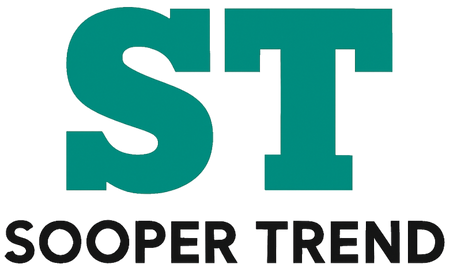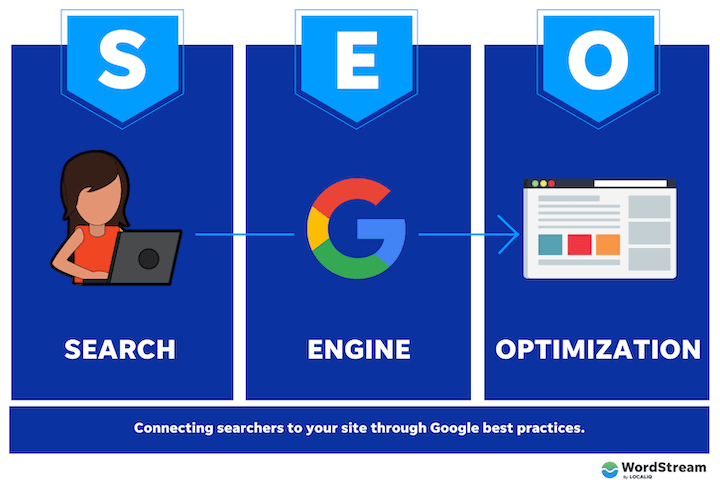Optimization of your website for search engines is a major factor influencing your website’s rank in search engines. In other words, search engines will rank your website higher if you have a good SEO strategy.
Search engine optimization (SEO) is the practice of improving your website so that it shows up higher in search results. By doing so, you can generate significant traffic for your website and ultimately increase your sales. Sounds great, right? Well, unfortunately, search engine optimization is complicated and mistakes can easily be made. In this article, we’ll take a look at some of the most common mistakes people make when optimizing their websites for search engines.
Contents
1. Not Creating Enough Content
If you’re not creating enough content, you’re making a costly mistake when optimizing your website for search engines. Content is essential to attracting visitors, engaging customers, and building relationships with prospects. It is also essential for establishing your business as an expert in the industry.
When you don’t create enough content, your website is missing out on a key opportunity for traffic and engagement. Without content, potential customers won’t know your business exists and you won’t be able to connect with them. Content can help you create relationships and build trust with customers, leading to more conversions and sales.
Creating content doesn’t have to be time-consuming. You can re-purpose existing content, such as blog posts, into new content like podcasts, videos, or social media posts. You can also outsource content creation to freelance writers, copywriters, or other experts to save time.
Make sure you’re creating content that’s engaging, informative, and relevant to your target audience. The content should be easy to read, share, and comment on. With the right content, you can create relationships with customers and prospects, build positive brand awareness, and drive more traffic to your website.
2. Not Using the Right Keywords
If your website isn’t optimized to appear on the first page of search engine results, chances are you’re not getting the visibility and traffic you need to succeed. Unfortunately, many website owners make the mistake of not using the right keywords when optimizing their website for search engines, resulting in fewer visitors and less revenue.
When it comes to SEO, keywords are the foundation upon which your website is built. Selecting the right keywords is crucial for gaining visibility in the SERPs, and it’s important to understand what types of keywords to use and how to use them effectively.
The most effective way to optimize your website for search engines is to focus on long-tail keywords. Long-tail keywords are longer, more specific search terms that tend to have higher search volumes and less competition. They are also good at targeting specific audiences and can be used to target local markets.
Another important aspect of keyword selection is to make sure you are using the right amount. Too many keywords can lead to keyword stuffing, which can result in a decrease in rankings and even a penalty from Google. On the other hand, not using enough keywords can mean your website won’t appear in the search engine results pages (SERPs) at all, leaving you invisible to potential customers.
3. Not Tracking Your Results
The importance of tracking your results cannot be overstated. By tracking your progress, you can figure out which strategies are working best for your website and which ones are not. You can then adjust your approach accordingly and keep track of your progress over time. In other words, you can monitor your success and identify areas for improvement.
But what should you be tracking? The most important metrics to track are your website’s search engine rankings, website traffic, and conversions. By tracking these metrics, you’ll have an understanding of how well your website is performing in terms of SEO.
It’s also important to track your SEO efforts over time. If you’re making progress but seeing no results, it’s important to figure out why that is. You may need to switch up your approach or adjust your strategies. Tracking your progress over time can help you identify areas where you need to make changes.
Tracking your results is essential for getting the most out of your SEO efforts. Without it, you have no way of knowing if you’re on track to reach your goals. Additionally, you won’t be able to identify areas where you need to improve. So if you’re serious about optimizing your website for search engines, don’t make the mistake of not tracking your results.
Are you looking to hire a seo konsulent (SEO consultant) to help you optimize your website for search engines? If so, you’re making a smart move. SEO consultants can help you get your website ranking higher in search engine results pages (SERPs) and ensure that your website is well-positioned to attract more organic traffic.
4. Not Optimizing Your Images
Unoptimized images can significantly slow down your website, leading to poor user experience and decreased traffic. Furthermore, it can also lower your website’s ranking on SERPs, meaning fewer people will find your website.
Image optimization is the process of making your images smaller in file size while still preserving their quality. This can be done by compressing the image, resizing it, or using a format like JPEG or WebP. All these steps can help reduce the file size of your images and make them easier to load on websites.
As well as making the images smaller, you can also use tools like Image Alt Text to add extra information to your images. Image Alt Text is a text description of the image that is used by search engine robots to understand what the image contains. This can help your images to appear in image search engine results and can help improve your website’s visibility.
Optimizing your images is one of the easiest and most effective ways to improve your website’s performance. The smaller file size will help your website load faster, resulting in a better user experience and increased traffic. Furthermore, it can also help your website rank higher on SERPs, helping to bring in more organic traffic.
5. Not Optimizing Your Title Tags
Title tags are incredibly important when it comes to SEO. They are the first thing a search engine sees and they tell the search engine what your page is about. Optimizing your title tags is one of the most effective ways to ensure that your content is included in the search engine results.
Unfortunately, too many businesses and website owners overlook the importance of title tags. They may not even realize that title tags are an important part of SEO. Or, they may think that optimizing title tags is too complicated or time-consuming. But the truth is, optimizing title tags is fairly simple and doesn’t have to take a lot of time.
Optimizing title tags involves adding relevant keywords that accurately describe the content of your page. This helps search engines understand what your page is about and rank it accordingly. You should also use unique title tags for each page so that the search engine doesn’t think you’re repeating content on multiple pages.
6. Not Optimizing Your Site’s Loading Speed
Having a slow-loading website is an all-too-common mistake when optimizing your website for search engines. Not only does it cost you visitors, customers, and revenue, but it can also be detrimental to your SEO ranking.
When a website takes too long to load, users become frustrated and click away from the page. This isn’t just bad for user experience, it can also cost you in the long run. Search engine crawlers recognize when a page takes too long to load, and this can negatively impact your website’s rank in the SERPs.
To ensure that your website loads quickly and efficiently, you should take the time to optimize your site. This includes optimizing images, compressing files, and caching pages. These steps will help reduce the amount of time it takes for your website to load, resulting in a better user experience and a higher ranking in the SERPs.
You should also monitor your website’s performance. Pay attention to page speed, page size, and other performance metrics which can affect your website’s loading time. By regularly monitoring these metrics, you can identify and address any issues which could be causing your website to slow down.
7. Not Promoting Your Content Enough
Promoting your content is an essential part of being a successful content creator. Without effective promotion, your content won’t reach the audience it deserves, and your efforts will be wasted.
Unfortunately, many content creators make the mistake of not promoting their content enough. This can be a huge mistake when optimizing your website for search engines. If you’re not promoting your content enough, you’re not getting the visibility you need to reach the right people.
The most important thing you can do is to use multiple channels to promote your content. This includes social media, email marketing, and paid advertising. Social media is essential for content promotion, as it’s one of the best ways to reach your target audience. Platforms like Instagram, Twitter, and Facebook are perfect for sharing your content.
Summary
We have discussed many common mistakes that people make when setting up their SEO strategy. Because search engine optimization is constantly changing, it is difficult to teach SEO in blog posts. However, we hope that in this article we have learned and covered the most important mistakes. If you have questions, please leave a comment below. We will be happy to answer your questions.




